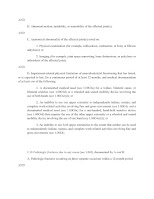From a press release issued by Andrew Saul:
"I want to provide an important update about the Social Security
Administration’s (SSA) processing of Economic Impact Payments (EIPs)
under the American Rescue Plan (ARP) Act.
At each turn over the last 12 months, immediate delivery of EIPs has been, and remains, a top priority for this agency. ...
Since the time that discussions began regarding issuance of EIPs in the
ARP Act, weeks before passage, we have worked tirelessly with our
counterparts at IRS to provide to them the information they need to
issue payments to our beneficiaries. Despite the fact that Congress did
not directly provide SSA funding to support our work on EIPs, we have
provided countless hours of assistance to IRS consistent with the laws
that establish how we may use the Trust Funds that every American counts
on us to protect. ...
SSA discussed with Treasury and IRS, both before passage and after
enactment of the ARP Act, that the Social Security Act does not allow
the agency to use our administrative appropriation to conduct work on
any non-mission provision or program. Accordingly, we were not
authorized to substantively engage Treasury or IRS prior to the ARP’s
passage. Instead, upon passage, we were required to pursue a
reimbursable agreement with IRS because we received no direct
appropriation through the ARP Act. From the outset of discussions, we
kept congressional staff apprised of the hurdles this approach would
create for SSA, and we have continued to update them on our progress
with IRS as we completed the required interagency agreements.
Once we were free to move forward, we aggressively worked with Treasury
and IRS to issue payments. As a result of our efforts, we successfully
signed the reimbursable agreement and a Memorandum of Understanding
(MOU) less than one week after passage, on March 17.
That process often takes weeks or months to complete, but we got the job
done in a matter of days. A few days later, on Monday, March 22, SSA sent initial test files to IRS. IRS confirmed testing success on Wednesday, March 24. Production files were delivered to IRS before 9 AM on Thursday, March 25 – more than a week sooner than we were able to provide a similar file to IRS during the first round of EIPs. ...
Doing it a little faster than last time doesn't sound like an achievement to me. Of course, it's faster this time because you have the experience of having done it before. I don't understand the statement that "we were not
authorized to substantively engage Treasury or IRS prior to the ARP’s
passage." Really, why not? Social Security cooperates with many other agencies all the time. What is this obsession with not using appropriations for non-mission programs? That doesn't seem to have prevented a ton of other data matches. Also, why was the agency having active discussions with Treasury and the IRS at a time when it supposedly wasn't allowed to "substantively engage" with them? That doesn't make sense. Why couldn't the MOU have been negotiated prior to passage of the bill and signed immediately after passage? Passage of the bill wasn't a cliffhanger. Why would it take even a week to negotiate a new MOU anyway? This had been done before. Just dust off the MOU you used previously and use essentially the same language. You don't have to re-invent the wheel.
I'd like to hear the IRS and Treasury side of what happened.










